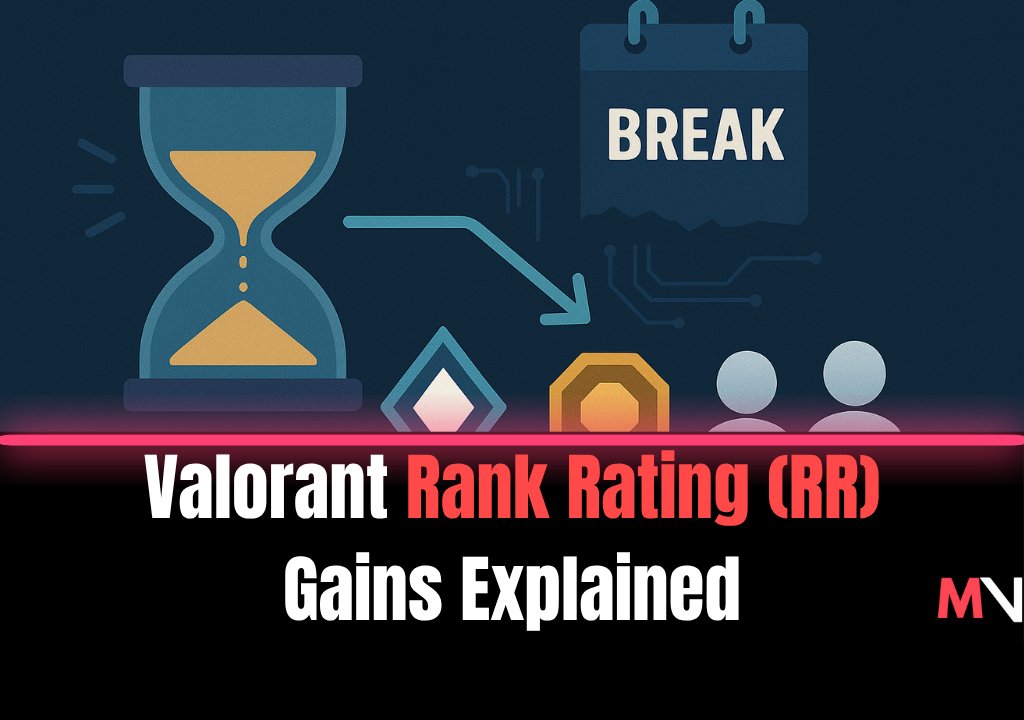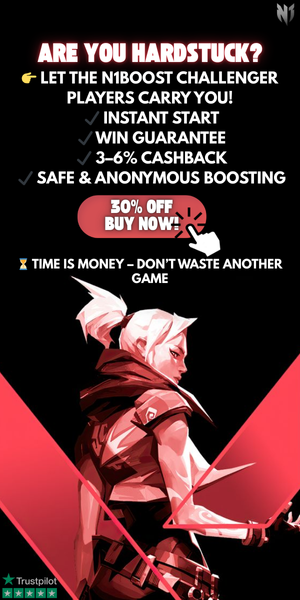MMR Decay After a Break
Taking a break from ranked play in Valorant can be good for your mental health, but it often leads to MMR decay, which is very annoying. It might feel like the game is punishing you when you come back after a week, a month, or longer. Your aim is off, you lose confidence, and your Matchmaking Rating (MMR) no longer shows how well you used to play.
Let's take a close look at how MMR decay works in 2025, how long it takes to change your rank, and how to get back to where you were quickly.
🧠 What is MMR Decay?
MMR decay is not a formal punishment like losing rank; it's just the system changing your hidden skill rating when it sees that you're not playing. Riot made Valorant's system so that MMR shows how well you are doing right now, not just how well you did in the past.
When you stop playing for a long time, your MMR confidence (how sure the system is about your skill level) goes down. Because of this:
- You can go back to matches with a little lower MMR, even if your old stats were high.
- RR gains can get smaller, going from +25 to +15.
- The system will make you "prove" that you are still consistent.
MMR decay doesn't erase your progress; it just resets your standing until you get back into shape by playing consistently.
⏳ How Long Does It Take for MMR to Go Down?
In Valorant, the decay timeline depends on your rank, how often you play, and how active you are:
- Casual or Silver–Gold Players: After about 2–3 weeks of not playing, their MMR confidence starts to drop.
- High Ranks (Immortal–Radiant): The decay starts sooner, sometimes after 7–10 days, because the system expects top players to always be active.
- After a Month of Not Playing: Your MMR can drop by 5% to 10%, which means you'll be matched with slightly weaker opponents at first.
Your visible rank may stay the same, but your hidden matchmaking MMR takes time to build back up after you come back.
⚙️ How the Decay System Works on the Inside
The new 2025 system from Riot uses a confidence-weighted decay model. This is how it works:
- MMR Confidence Drops: The more you play, the less the system trusts your past data.
- Placement Weighting Increases: The next few matches after you come back are very important for resetting your true level.
- RR Gains Level Off: The RR gains are smaller per win until confidence is rebuilt.
- Recovery Curve: If you keep playing the same way, the decay effect usually levels off after about 10 to 15 matches.
This design keeps the ranked ecosystem fair by making sure that players who aren't active don't mess up matchmaking.
💪 How to Get Back to Normal After MMR Decay
Structured gameplay habits can help you get over MMR decay faster than you think:
1. Get Ready Before Ranked
Play Deathmatch or Aim Trainer games (like Aim Lab or Range) for 15 to 20 minutes. This helps you get your reflexes back before you play ranked matches.
2. Begin with Unrated or Swiftplay
Play the easier modes first to get back into the swing of things without losing RR. Your goal is to reset your muscle memory, not your MMR yet.
3. Play Often, but Not Too Much
Don't play more than ten games in a day. Instead, play 3 to 5 good matches every day to naturally build up your MMR confidence.
4. Stay with Your Main Agents
Using agents you know well will help you get better faster. Changing agents right after a break often makes things less consistent.
5. Look at Replays and Stats
Use data tools like Tracker.gg or Blitz.gg to look at patterns after a break, such as accuracy, utility usage, and entry success rates. Knowing where you're weak helps you get better faster.
🧠 The Mental Side of MMR Decay
When players come back from a break, they often feel frustrated because their performance isn't consistent, which leads to bad early results. Keep in mind:
- Decay isn't a punishment; it's a way to reset things for a short time.
- Your next 10 to 20 games will set your new baseline, not the first few.
- To get better faster, focus on being consistent instead of rank.
It's just as important to build up your confidence and get back into a routine as it is to rebuild your mechanical skill.
🔓 Last Thoughts
MMR decay doesn't mean you're worse; it just means the system needs proof that you're still at your best. If you are patient, do your warm-up exercises, and keep up your performance, you will recover faster than you think. Your MMR will level out in a week or two, and your ranked climb will feel smooth again.
🔗 Track and Rebuild Your MMR with Data
Want to know how much MMR you've lost or how far along your recovery is?
To see your hidden MMR, look at your match history, and keep track of your comeback curve, go to https://mmrvalorant.com/
. The platform shows you how your MMR is changing and how stable your rank is in real time, so you can climb with confidence after any break.
Tags

Author




